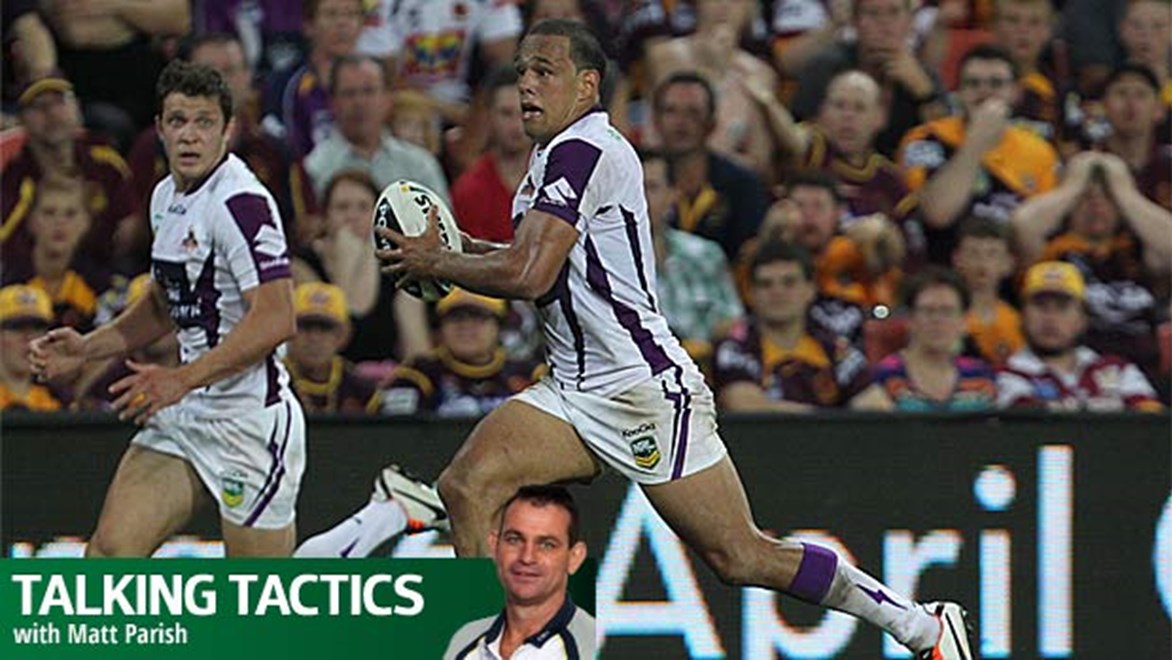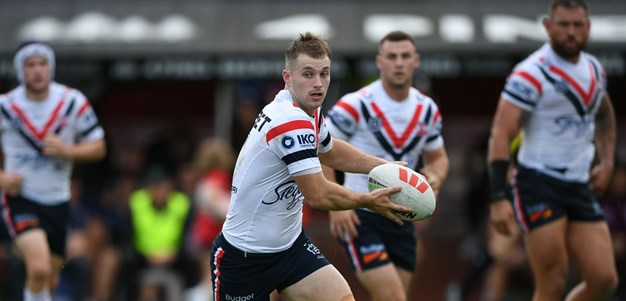

A 60-metre dash down the flank to find the line; that field-goal with less than two minutes left on the clock; or a bone-jarring hit that leaves the opposition shell-shocked are all moments that are guaranteed to make a highlights reel and be the topic of conversation at the water cooler.
These actions create stirring headlines and arm rugby league’s commentators with colour and excitement.
But it’s the effort from players off the ball – diligently going about completing the “one-percenters” – that can often be the difference between winning and losing.
But it’s the effort from players off the ball – diligently going about completing the “one-percenters” – that can often be the difference between winning and losing.
Run metres, tackle busts, line-breaks, tackles made, tackles missed and errors are all actions that are easily statistically recorded, and are what most people will look at to judge the players efforts in a game.
But it’s the unselfish acts like staying onside for kick chases, protecting your kicker, a good sell in a decoy run, sticking to team principles in defence (such as pushing up hard, working from the inside out, working hard from marker tying into the defensive line) – even little things like loud, dominant communication.
These are things that all coaches look for in their teams.
Energy and enthusiasm are hard things to put ‘numbers’ on but all NRL coaches will demand this from their players in every match. These actions are difficult to measure but these off-the-ball-acts can often give a coach an indication of what sort of attitude his players have on any given day.
They can – and do, more often than not – decide the result of a match.
Coaches will often have someone watching and relaying the messages while they are watching the game – looking for these selfless actions and trying to develop a formula on how to measure them, in comparison to the regular statistics.
These actions also include supports, kick pressure, getting back early after a kick, and working hard on the inside in defence. They are all indicators to measure energy levels and the overall attitude of the team.
These actions also include supports, kick pressure, getting back early after a kick, and working hard on the inside in defence. They are all indicators to measure energy levels and the overall attitude of the team.
Coaches receive constant feedback regarding these efforts and make decisions during the game accordingly. Often a coach will decide whether to replace a player, or if they should take a kick for goal, or to keep the pressure on and go for a four-pointer.
As we all know, teams are very even in the NRL so these one per cent plays often have a major influence over the outcome of matches. Teams will practise some of these actions in most training sessions, depending upon what team they are playing in any particular week.
Players value teammates who consistently do the one per cent plays. They know the players who will turn up and do these little things well and who will bring energy, enthusiasm and a positive attitude to the team.
There is a saying that I first encountered when Ricky Stuart was coaching the Roosters that I have often used since: “Attitudes are contagious: Is yours worth catching?”

